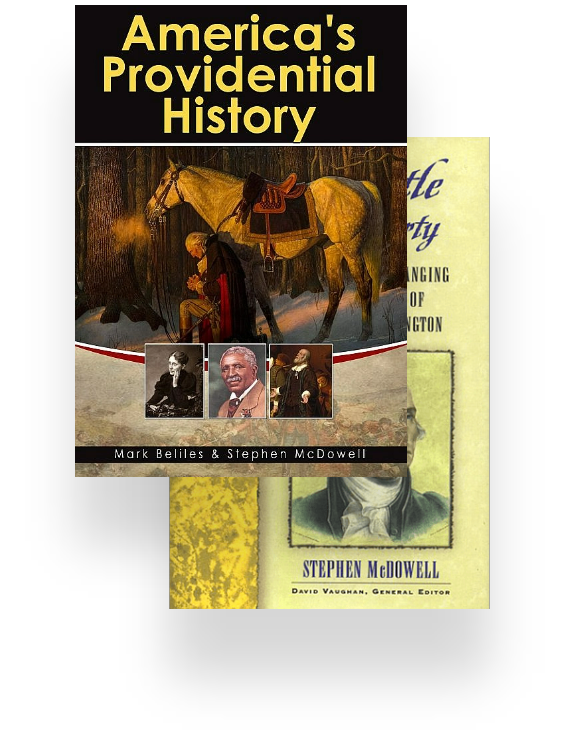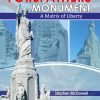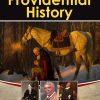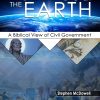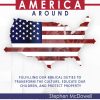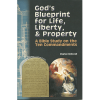Economy from Biblical Perspective (BSP)
“Choose you this day whom you will serve.” (Josh. 24:15) In 2008, America and the world were hit with an economic crisis. Declining property values, bad mortgages, over-extension by lending institutions, and sinking businesses were some of the easily recognizable factors contributing to this crisis. Governments in different nations began to take steps to attempt to provide a solution. Most of the governments’ actions involved using tax dollars (money that does not exist) to bail-out or invest in various financial institutions and some failing businesses (like General Motors). Were the actions taken by the governments the best thing they could do to solve the problem? Were these actions the Biblical means of dealing with the crisis? What is the role of government in economic issues? To answer these questions we must have some understanding of what the Bible says about economics.
Economics begins with choices.
“Choose you this day whom you will serve”—God or man (Josh. 24:15). This is the foundation for our economy. Economics begins with choices. Personal choices determine our personal economic situation. The aggregate choices of all citizens shape the economy as a whole. In addition, choices of rulers greatly impact the national economy, for government is the house in which the economy lives.
Our worldview determines the nature of our economy.
As we approach economics, as any area of life, we all start with presuppositions. Our presuppositions, or set of ideas and beliefs that we hold about the world, will determine how we view economics, and hence, how we as a people organize our economic systems and policies (as well as our governmental systems, which have a great impact upon our economic systems). Christians start with the idea that GOD IS. Non-believers should also, but do not, start at this place, since this forms the foundation for prosperity and liberty. C.H. MacIntosh compared non-believers and believers approach to knowledge,writing in 1882:
“He [the non-believer] measures everything by his own standard, and
rejects whatever he cannot reconcile with his own notions. He lays down, with
marvelous coolness, his own premises, and then proceeds to draw his own
conclusions; but if the premises are false, the conclusions must be false
likewise. And there is this invariable feature attaching to the premises of all
skeptics, rationalists, and infidels—they always leave out God; and hence all
their conclusions must be fatally false. On the other hand, the humble believer
starts with this great first principle, that God is; and not only that He is, but that
He has to do with His creatures; that He interests Himself in, and occupies
Himself about, the affairs of men.”1
We start with the premise that there is a God Who created all things, including man—and God is concerned about the economy, about how we manage our household and our nation. Viewing man from God’s perspective has great implications for economics. The Christian view of man includes:
• Man is created in the image of God, and hence has great value.
• Man has many characteristics of his Creator, including the ability to choose.
GOD IS and He has revealed Himself in His Word. He has also revealed principles for all of life (including economy). Thus, men who claim to be Christian must reason from those principles to be truly Christian and to obtain the fruit of obedience.
Definition of economics
In his original dictionary (published in 1828), Noah Webster defined economy as:
1. Primarily, the management, regulation and government of a family or the concerns of a household. . . . 3. A frugal and judicious use of money; . . . Frugality in the necessary expenditure of money. . . . 9. System of management; general regulation and disposition of the affairs of a state or nation, or of any department of government.2 The last definition is what most people think of when speaking of economics, but this definition stems from the prior definitions. How people manage their households determine what the economy at large will look like.
Economist: one who manages domestic or other concerns with frugality; one who expends money, time or labor judiciously, and without waste.3 Notice in both definitions the basic idea of frugality. We can all be economists if we manage our time, money, and labor with frugality. We are not to be prodigal (wasteful; recklessly extravagant) sons.
Economics as Choice
One Biblical supposition affecting our view of the economy is that God created man knowing he would have basic needs, such as food, clothing, and shelter. God created everything that was needed to meet those needs. One, God created natural resources — He created renewable resources (through photosynthesis and reproduction). We can have confidence that God has provided all that we need; thus, we have can have faith to seek, find, and process abundant natural resources.
We do not live in a resource short world. If we follow God’s ways and continue to seek for new ideas and new ways to look at the resources He has put in the earth, we will always have that which is needed to have life abundantly and to take dominion over the earth. While God has created the earth such that we have renewable resources, resources are not unlimited. There is a scarcity of time, labor, and material wealth. We must use the resources we have in a frugal manner in order to gain the greatest benefit from them. We are to be good stewards of all the things God has given to us. We are to economize. In his definition of economize Webster wrote, “It is our duty to economize, in the use of public money, as well as of our own.” To economize in the use of public money requires Christian character.
Since we must manage limited resources judiciously, this implies we must make wise choices. Thus, economics can be called the science of choice. In the broad sense, economics is the study of the choices men make to better their households. Economics is unique to man because only man can choose. Man can choose, because he was created in the image of God with the ability to choose. God can choose, and so can man. This choice is what makes anything valuable. If God declares something has value, then it does. His choice makes it valuable. Likewise, man’s choice gives value to things. “Value exists only in the mind (that is, all value is imputed by man, that he arranges things or available choices according to his own unique scale of preference or value).”4 Man often chooses differently than God, which has consequences. For example, some people do not value human life and have killed many people. Some men have placed great value on immoral things, contrary to what God says. Christian men will choose to labor hard, save, invest, and give. Lost men often choose differently.
The value of material things is determined by the value man places upon them, by how he thinks about them. What he thinks is affected by his worldview and also his circumstances. Consider for example what is more valuable, water or diamonds. Most men place a much greater value upon diamonds than water (due to the relative abundance of each) and would exchange a huge volume of water for one diamond, if the owner of a diamond would agree to this. But in certain circumstances, for example for one lost in a desert, water becomes much more valuable than a cup full of diamonds. The relative availability of something affects how men value a thing in their mind, but this is not the only factor. An item may be scarce (like a modern pop-art painting), but many people would assign no value to it. Value is imputed to something by the choice that individuals make based upon their own scale value. Some people would pay millions for some modern abstract paintings; I would pay nothing, or little, and that only considering I could sell it to someone with a completely different mental scale value. Some would pay hundreds of dollars to see certain musicians in concert that I would not go to see unless someone paid me.
God wants man to make choices that benefit man and advance God’s Kingdom in the earth. In a broad sense, these choices include spiritual as well as materials things; but we will concern ourselves in this study with the frugal use of physical things. However, we must realize that man’s material choices flow from his spiritual and moral beliefs. Moral and ethical concerns are intertwined with economic choices. In fact, the founder of modern economics, Adam Smith, was the instructor of moral philosophy at the University of Glasgow; and his book The Wealth of Nations (1776) was developed out of his prior book, The Theory of Moral Sentiments (1759).
Choice is the foundation of economics.
Bad choices by individuals produce bad economic results, personally and nationally. People choosing to spend beyond their means is one main factor in the rising number of home loan defaults in recent times. (There are many other contributing factors to this problem, including unethical lenders, but fundamentally this crisis is a result of the nation violating Biblical principles of money and banking.5)
Bad choices by government leaders
Bad choices by government leaders also have a devastating effect upon the economy. For example, if the United States government chooses to spend more money than it takes in via taxes (by law individual states cannot deficit spend), it must borrow money or increase the money supply. There are many negative effects of these actions including: inflation and ever increasing prices of goods and services, diminishing wealth of citizens (including those not yet born who must help pay for the borrowed money), and decreasing value of the dollar.
Isaiah pointed out to the nation that had turned aside from God’s law: “Your silver has become dross” (Isa. 1:21-23). Mixing cheap alloys with silver increases the money supply in a deceitful and unrighteous way. This same thing occurs today all the time in nations all over the world, not by directly mixing base metals with silver, but by artificially increasing the money supply. The federal government has consistently spent more money than it has taken in for many decades. To cover this deficit spending the money supply must be increased (or more money must be borrowed, which has the same effect). The Money Supply (M36) has been going up at 16% recently. In the three years of 2005-2007, $4 trillion of new money was created. The consequence of increasing the money supply is inflation, rising prices. Prices rise because there is much more money to purchase the same (or nearly the same) amount of goods and services.7
Congress does not have the character or knowledge to decrease spending — domestic spending is up, military spending is up. Recent tax rebates and massive government bailouts required borrowing money (which diminishes the wealth of the nation and robs from our children and grandchildren) and/or the creation of new “money.” Where did the federal government get the $750 billion it used to attempt to fix many collapsing banks and lending institutions in 2008? Where did it get the nearly one trillion dollars for its stimulus spending package of early 2009? Some of this money will be borrowed, some will be created from nothing.8
Good choices produce prosperity and advancement.
To improve our economy, we should make sound choices—as individuals, families, businessmen, and civil rulers. We should choose to follow God, and obey His commands and precepts. If we do, we will work hard, be honest in our economic activities, be frugal, not spend beyond our means, give to God’s Kingdom work, save and invest, and do all those things necessary for wealth and God’s blessings to come upon us and our nation. The overall economy of a nation is determined by millions of choices the citizens make every day. The economy begins in the heart and mind of man.
The choice and action of rulers can have a great impact upon the economy. For example, Zimbabwe’s President Robert Mugabe has nearly destroyed the economy of the nation by his many bad choices; most of his people are starving.
The Bible and Economics
The Bible speaks to all of life and gives principles for every good work (2 Tim. 3:16-17). It has much to say about economics and business. To be able to assess our current economic situation and determine what policies would be best to put the nation upon a path of prosperity, we must know what the Bible teaches about economics. . . .
* * *
[To get the complete 30-page booklet order a copy today from our website: providencefoundation.com Become a Member of the Providence Foundation and receive regular writings like this, and much more. See our website (or the end of this booklet) for details and to join.]
* * *
Some of the ideas presented in the rest of The Economy from a Biblical Perspective include:
Some Biblical economic principles include:
1. God desires us to have wealth in order to fulfill His purposes.
2. Christianity produces liberty which is necessary for economic advancement.
3. A Christian economy (with the corresponding fruit of wealth, blessing, charity) will flow from the heart and mind of man outward.
4. Private property is a fundamental component of prosperous, advancing economies.
5. Individual enterprise and wealth result when men are able to benefit from the fruit of their labor.
6. Productivity increases as we work in union with others who exercise their unique gifts and skills.
7. The free market encourages men to serve the wants and the desires of their fellow man, voluntarily.
8. Labor and rest are needed to gain profit, wealth, and enjoyment in life.
9. Wealth is transferred and accumulated through inheritance.
10. The poor and needy are to be assisted by voluntary Biblical giving.
Also covered:
The Role of Civil Government in the Economy Socialism Versus Biblical Economics Practical Things to Help Establish a Biblical Economic System
* * *
Copies of this booklet can be ordered from the Providence Foundation for $6.95 each. Use the order form on the last page, visit our website (www.providencefoundation.com),or call 434-978-4535.
End Notes:
1. C.H. MacIntosh, Notes on Numbers (New Jersey: Loizeaux Brothers), 1972. Quoted in Tom Rose, Economics: Principles and Policy From a Christian Perspective, Mercer, Penn.: American Enterprise Publications, 1996, p. 16.
2. Noah Webster, An American Dictionary of the English Language, republished facsimile of original edition (1828), San Francisco: Foundation of American Christian Education, 1980, definition of economy.
3. Ibid. Definition of economist.
4. Tom Rose, p. 21.
5. For more on money and banking, see Foundations of Biblical Economics, Business, and the Marketplace by Stephen McDowell, a Providence Foundation Biblical Worldview University course. See also Honest Money and Banking, Providential Perspective Series 3.
6.M1=currency in circulation and bank checking accounts. M2=M1plus savings accounts. M3 = M2 plus CDs over $100,000, institutional money market funds and term repurchase agreements. M3 is no longer reported, which hides the real amount of the money supply.
7. The official inflation rate in the U.S. for recent years has been only about 2-3%, but if it were measured as it has been in the past, it is really 11-12%. See Honest Money and Banking for more on inflation.
8. Congress affects the money supply by instructing the treasury to issue CDs (certificates of deposit) or treasury bonds. (It can also open up the presses.)The Federal Reserve Board affects the money supply by setting interest rates. Low rates spark loans,which,with fractional reserve banking, has the effect of expanding the money supply. To increase reserves, the Federal Reserve buys U.S. Treasury securities by writing a check drawn on itself. The seller of the Treasury security deposits the check in a bank, increasing the sellers deposit. The bank, in turn, deposits the Federal Reserve check at its district Federal Reserve bank,thus increasing its reserves(which then enables the bank to loan more money since
only about20% must be kept on reserve).AnnaJ. Schwartz,MoneySupply,The Concise Encyclopedia of Economics, www.econlib.org/library/Enc/MoneySupply.html.



